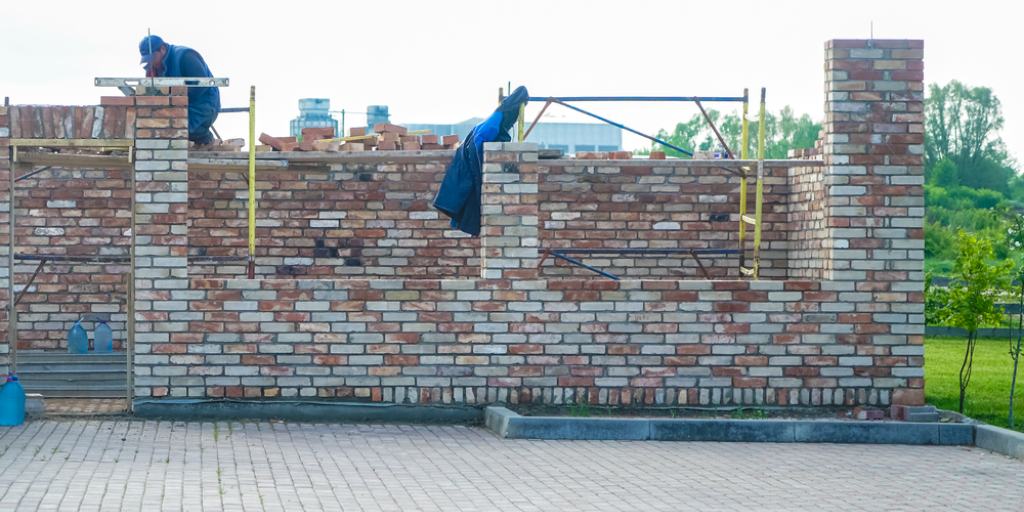Building block
Today’s expression is “building block.” This is great. A building block is a standard unit that’s used as the starting point to construct something much more complex. The easiest way to think about this is to think of a brick—a single red brick. Then think of a red brick house. The brick is the standard unit; the house is something more complex. You use bricks to build the house.
It’s often said that cells are the building blocks of life. The smallest living things are one-cell organisms, bacteria. The biggest living things are—I don’t know?—whales, I think. Whales are made of lots and lots of cells. So are humans. So are house plants. So are fish. Every living thing is made of one cell or more than one cell. So we say cells are the building blocks of life. Cells are the standard unit used to construct something much more complex.
Syntax, branding, iteration, order of execution, decisions, abstraction, and scoping: these are the building blocks of computer programming. If you want to know what all that means, you’re going to have to ask someone else. I don’t know. But—according to what I have read—all computer programs use those seven components. Even the most complex programs use those seven elements.
The periodic table of elements includes 118 elements. These chemical structures are the building blocks of matter. All physical matter in the world is either one of these elements, or a combination of these elements. So we say the building blocks of matter are the 118 known elements.
Songs are made. They are written. Someone starts with an idea, and those ideas later become a song. What do songwriters use to create the music—the sound—in a song? They use notes. Notes are like letters in writing; chords are like words in writing. So a book is not really a collection of letters, but a collection of words. And words are the building blocks of language. It’s the same in music.
If you listen to songs carefully, you’ll notice that it’s not a jumble of notes. A combination of notes is a chord; almost all songs start with chords. The chord progression is more complicated. So I think we can say that the chords are the building blocks of a song. You take a selection of chords, you re-arrange them, you repeat them, you change it up, and then you have a song. For that reason, we say—actually Ed Sheeran says —that chords are the building blocks of pop songs.
Some people say that families are the building blocks of a healthy society. Without the family structure, they say, society would fall apart. What is a neighborhood, what is a town or city, what is a country? They are large collections of families, just like a human is a large collection of cells. And some people say that families are the building blocks of a healthy society.
What are the building blocks of a good education? It’s often said that reading, writing, and arithmetic are the building blocks of a good education. Start with that and everything builds from there. Not everyone would agree with that, though; what about the arts? What about creativity? What about interacting with others, social skills? Other people might say that social skills are the building blocks of a good education.
Quote of the Week
I told you a few weeks ago about one of my favorite authors, Jhumpa Lahiri. She is a native English speaker and she learned Italian. She went to live in Italy to learn it and even published a book in Italian. So here’s what she says: “If you’re really going to learn a new language, you have to disarm yourself and become a child again.”
Boy I think that’s right. You have to be comfortable being like a child again, at least for a little while. You’re going to make mistakes. When you read out loud, it’s going to take you right back to school when you were first learning to make the sounds represented by the words. It’s very humbling, as you all know. But you get over that eventually, and that’s when the real rewards start to come.
See you next time!
That’s all for today’s Plain English. Remember to visit PlainEnglish.com/GPT to sign up for our five-day ChatGPT challenge. It’s actually a mini-course. I was going to start it with just e-mail and a few videos. But it really ballooned into something much bigger—and it’s all for free. It’s starting next Monday, June 5. We’re all going to get together on WhatsApp, in one big happy group, and share our opinions and experiences together. PlainEnglish.com/GPT, get in there and sign up as soon as possible so you can be ready to go next Monday.
Use realistic expressions like a native speaker



